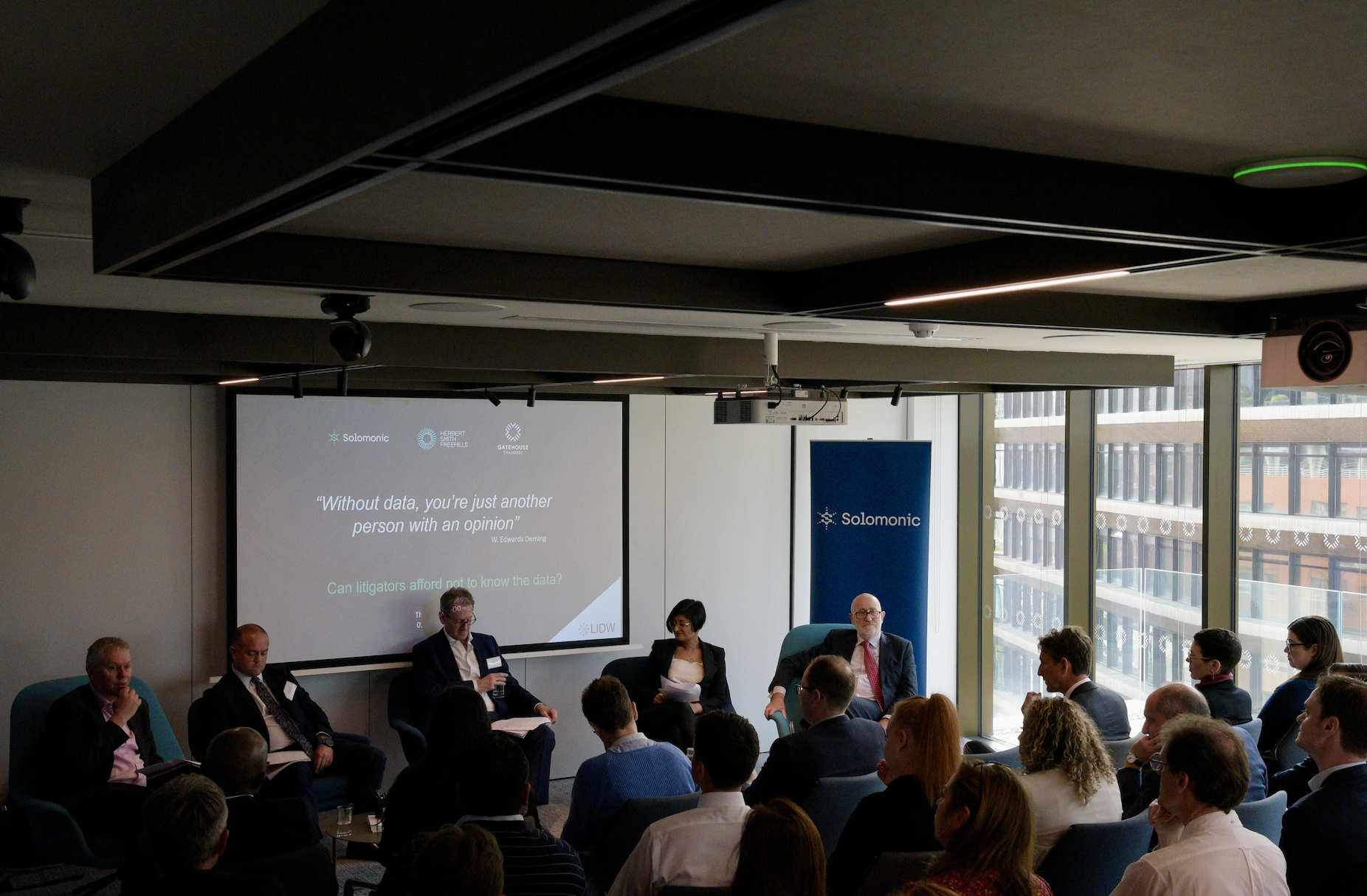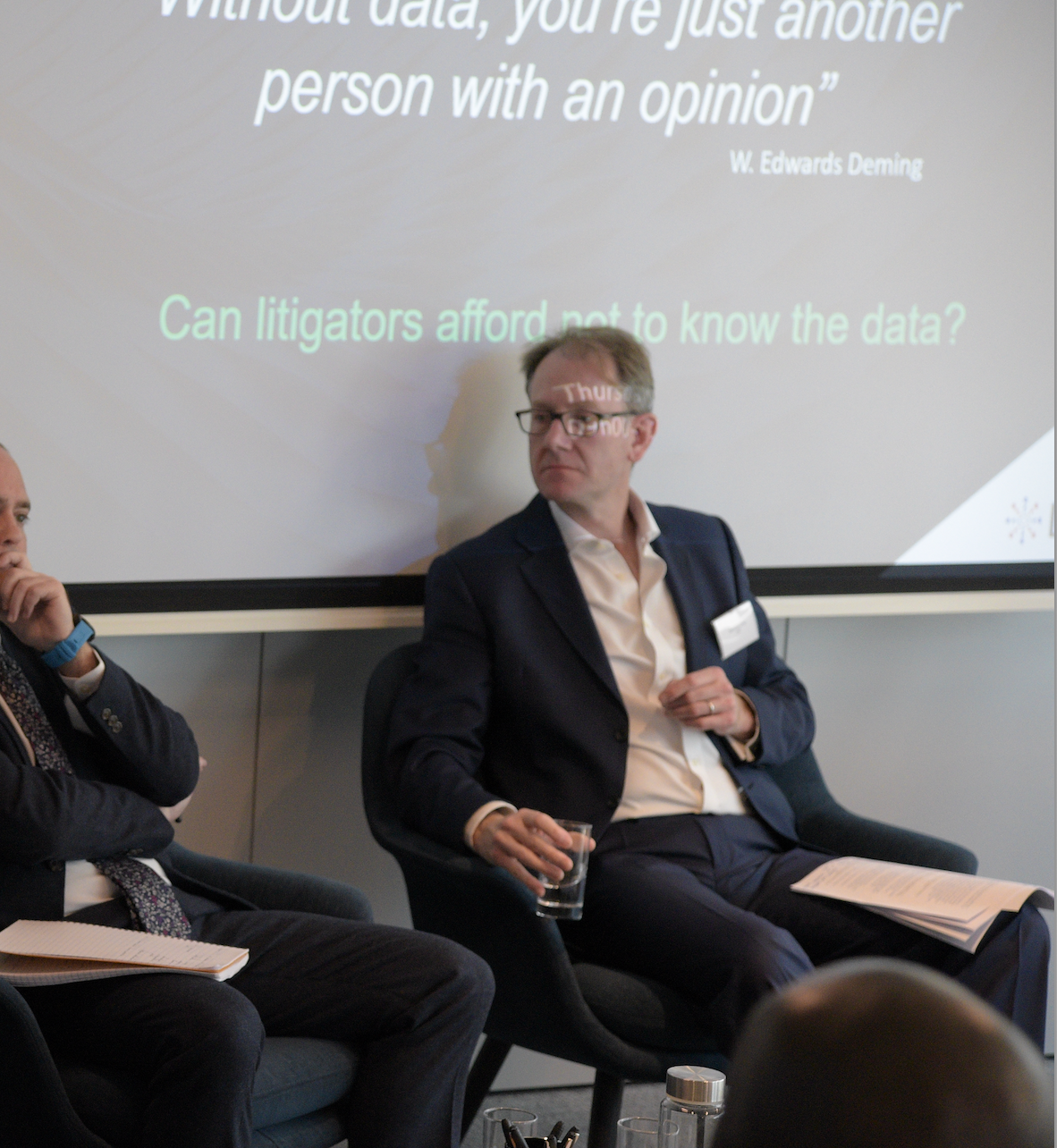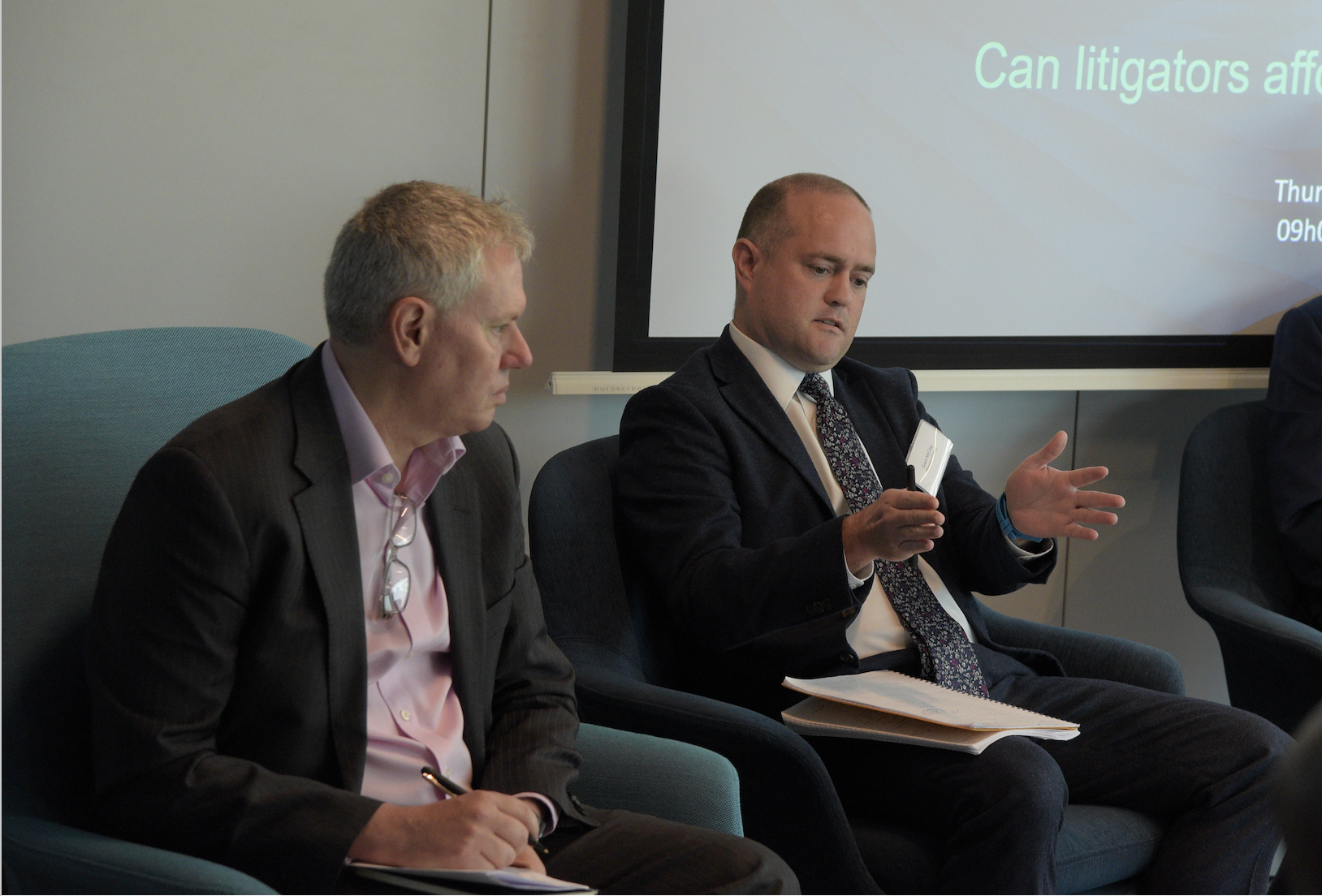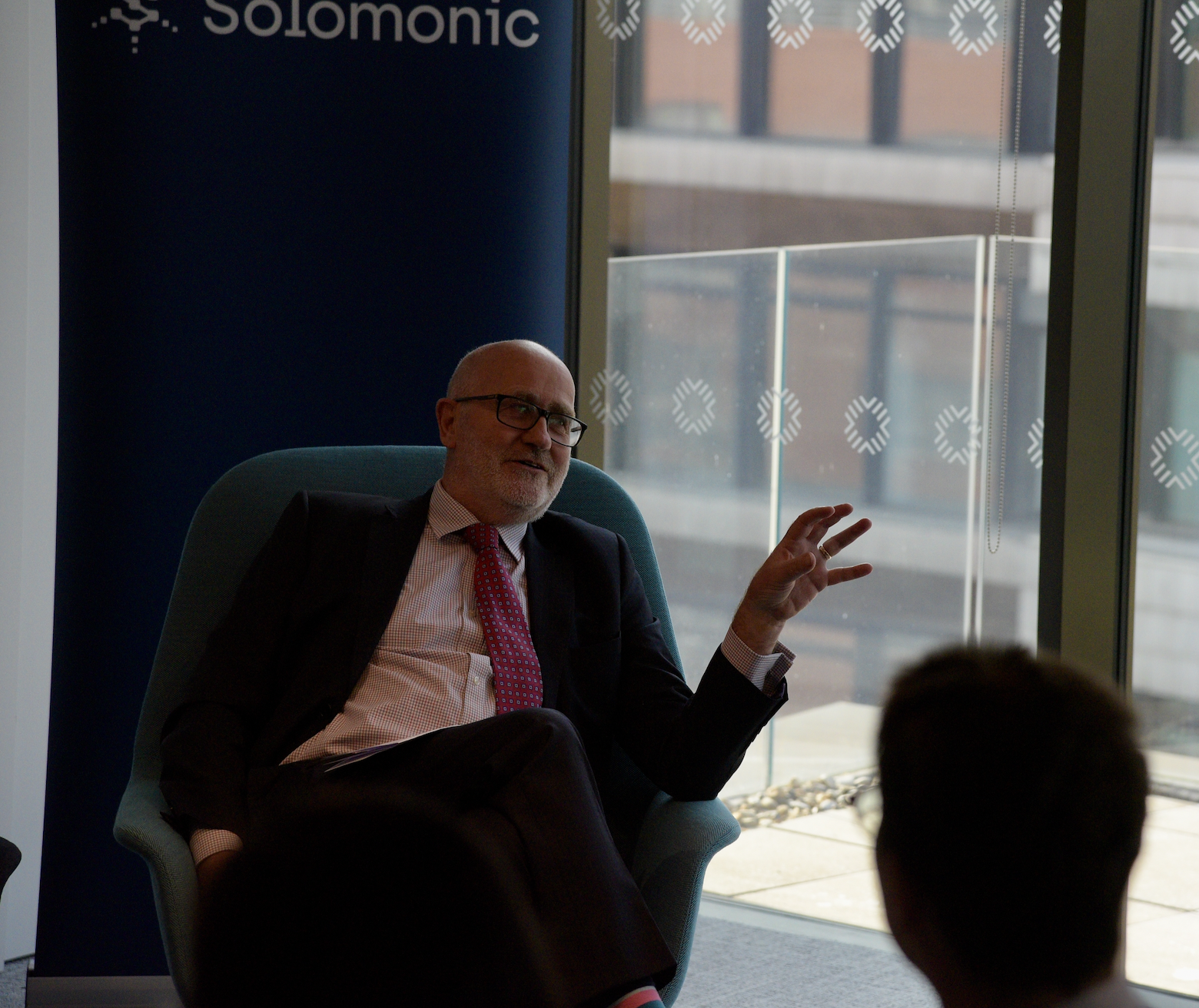Litigation data and analytics is now fundamental to litigation practice and the business of law
A recent survey in the United States revealed the widespread use of litigation analytics in that market and that almost 80% of clients now expected its usage. Two thirds of respondents described it as making them better lawyers.
As Solomonic we have seen the recent and rapid adoption of litigation analytics in the UK and wanted to gauge whether the utilisation of litigation analytics, both in the business and practice of law was reaching the point of wide spread acceptance.
So we set the question, “Can litigators afford not to know the data?” we invited a panel of leading practitioners to answer it.
The panel were:
Alexander Oddy: Partner, Herbert Smith Freehills
Grant McCaig: Head of Litigation, Phoenix group
Ellora MacPherson: Managing Director & Chief Investment Officer, Harbour Litigation
PJ Kirby KC: Barrister, Gatehouse Chambers
The panel began by addressing how they are using data and reflecting on the question set by the chair.
Herbert Smith Freehills (HSF) are data pioneers and have been on a journey of incorporating data analytics into their practice for many years. Their use of tools like Solomonic is now ingrained and used on a daily basis in much the same way as their use of other knowledge tools. Today, their focus is on proprietary data and using it to understand effort curves and delivering valuable insights to clients. For them data and analytics is essential to providing the best outcome for their client, Alex Oddy noted, “so if I can harness the power of my colleagues and the tools that are available … then I can look any client in the eye and say I have brought you all the insight I could do”.
Phoenix Group, as a data-driven organisation, uses data and analytics to provide context for board decisions in litigation, including success rates, settlement patterns, timelines and costs. Grant McCaig, “we have started using data and analytics to give context, to give those directors the context within which to make the decisions. It won’t make the decision, but it helps them understand how to make the decision.” They also use data to assist with forecasting how long cases will take. It also gives them some assurance and more comfort. He added, “we also use the data when doing acquisitions to see their litigation profile and if they tend to sue”.
Harbour Litigation, utilises a rich pool of proprietary data from funding inquiries to assess case quality, identify trends in disputes, and aid in portfolio construction and performance evaluation. Ellora McPherson, added, “Solomonic provides us with many, many different data points, such as the types of cases we’ve been involved in, those that have settled, those where the claim value has dropped, those where the budget has gone over and why, and so on and so forth”.
PJ Kirby KC acknowledged that the bar have been the slowest to engage with data and analytics. He noted, “I think the bar is behind the curve”, adding, “I think the bar will use the data and move from does anyone know about so and so, to here is actual data about so and so”. In his view the bar will “get there”, they will take some time to catch up.
Overall, The panel agreed that practitioners cannot afford to ignore data and analytics, as they provide valuable insights and combine the experience of lawyers with the power of technology for better outcomes.
The range of use cases was then explored covering a range of examples.
“All of a sudden, my inbox is tracking 40 actions in the Commercial Court that I care about, and so is all the team as well. That’s a very different feeling of engagement in terms of using information” - Alexander Oddy.
“Having Solomonic data, we now have a list of every company that we know would be at risk of litigation and notification processes, and that makes my life much easier”- Grant McCaig
“Data greatly reduces the area of uncertainty in disputes” - PJ Kirby KC
“We have invested in capturing and analysing the data. It is really integrated into how we do things” - Ellora Macpherson
The majority of cases settle, so using data to win settlements and achieve certainty of outcome, duration and cost is crucial. The panellists are utilising profiling and data to help with settlements and achieve greater certainty of outcome, duration and cost - all crucial to their clients and stakeholders.
Forecasting and providing certainty in terms of success chances, duration and cost are important to clients. Alexander Oddy noted, “If you can move the needle on any or all of those, then I perceive you have gained a competitive advantage.”
For McCaig, Access to data is going to become an expectation for sophisticated entities and clients, and not utilising it may lead to dissatisfaction. “I would be very disappointed if a firm I was using didn’t make use of this data”. Phoenix now also use the data for risk analysis and assessment, as well as making informed investment choices in the funding space.
Ellora MacPherson emphasised that combining external and internal data provides a competitive advantage and informs decision-making.
However, while data can narrow down uncertainties, it cannot predict case outcomes with absolute certainty, as there will always be factors beyond data analysis.
The aim is to reduce uncertainty by utilising data effectively, but there will always be room for unpredictable outcomes and individual behaviour.
The panel concluded by agreeing that while data and analytics may have a measurable impact and value for forecasting and brining certainty, there would always be a fundamental role for the practitioner to assess and balance the sources of intelligence.




